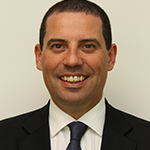After years of technologists advocating for change, COVID-19 has arguably driven more involuntary change in the last six months in businesses and public sector organisations than we’ve seen in the previous ten years.
And it’s no secret higher education has been among the earliest and most impacted. Forget about a war on two fronts. Australia’s universities, colleges and vocational training providers are dealing with challenges that make the Dawkins reforms look like a Sunday picnic.
At TechnologyOne, we’ve had our own experience of sudden and dramatic change. Back in 2011, the tragic Brisbane floods provided our company, already an established blue-chip software provider, with a wake-up call about the vulnerability of data centres.
That January, flood waters forced the company to evacuate its head office in Fortitude Valley. It had two state-of-the-art datacentres and a very solid disaster recovery strategy, but for three days the service was down, and customers could not access their data.
As our current CEO and then CFO, Ed Chung, says afterwards the company basically sat down and said, ‘never again’. Cloud technology was already on the horizon for us, but the incident was the push we needed to accelerate the move.
"The biggest lesson we took away from this was that if your data is in the cloud, your people can work from anywhere, on a device, at any time. It's a more flexible model for a workplace, with its own built in disaster recovery," Ed says.
The value of cloud technology is, of course, not news for Australia’s higher education sector. Our universities, colleges and institutes of advanced education have been some of the earliest adopters of technology in the world.
But digital transformation in higher education is easier said than done. Universities are complex. All have legacy systems and processes to take into account - not to mention day-to-day operations to run. Few have the time to throw out everything and start from scratch.
So they’re moving to the cloud in increments. Right now many in Australia, the U.K. and elsewhere---having already migrated their financial systems to the cloud---are turning their attention to their student management systems.
In November last year, TechnologyOne took a page from the books of our university customers and hosted a study tour for representatives of higher education institutions in the United Kingdom to visit with their Australian peers for a series of knowledge exchanges.
Leaders from Curtin, La Trobe, Macquarie, Melbourne, QUT, Swinburne, Western Sydney, Victoria Universities, and TAFE Queensland outlined the progress of their digital transformation journeys and, in particular, their use of cloud technologies to improve student experience.
We heard about many challenges in common including, for example, having multiple, poorly-integrated channels to service students which resulted in confusion on the students’ part and a lack of awareness of the existing support services available to them.

QUT calls this “The Service Problem” and its solution, HiQ, is a branded experience which exists as a ‘one-stop-shop’ for student needs both online and in physical service centres located on-campus.
HiQ helps students resolve questions related to services from faculty, administration, IT and library and their study generally. QUT says the results have been impressive, with more than 370,000 enquiries to-date.
At TAFE Queensland, the implementation of a student assistance program was delivered with the detail and thoroughness of a major consumer brand launch, with focus groups, journey maps and an emphasis on the latest thinking in behavioural psychology.
La Trobe introduced “Ask La Trobe”, a consolidated student service and enquiry function, in 2015. Before this, student services had been inconsistent; standards varied between campuses, with few metrics, and outcomes were reliant on individual staff.
After implementing its new system in 2018, La Trobe found admissions were more timely and consistent and timetabling more efficient. Student satisfaction, based on Net Promoter Score (NPS), has consistently improved and staff culture also become more cohesive.
Curtin’s adoption of a new cloud-based student management platform was, in part, informed by its participation in the development of new reporting requirements for universities known as TSCI (Transforming the Collection of Student Information).
These new requirements led to the parallel adoption SaaS solutions for student management and finance. Curtin has also successfully used the platform to implement new digital credentialing, student progression agreements and new syllabus projects.
Finally, Swinburne is incorporating ‘nudge tech’ into a project designed to improve the enrolment and on-boarding experience for students. It is building a new, more integrated enrolment pathway to guide students and to deliver an optimal experience in fewer steps.
Of course, none of us knew back in November how much and how fast things would change. But what’s instructive to me is how much better prepared we were at TechnologyOne to respond to the crisis than nine years ago; thanks to the lessons of 2011---and the cloud.
In the early days of COVID-19 in March, while TechnologyOne was taking care of the safety of our people and moving our workforce of 1500 to remote work, we also launched a package of free tools for customers specifically designed to help them weather the crisis.
The “Together As One” package has received wide praise from many of our customers, including many in the higher education sector. In particular, the analytics have proved popular, with a number of customers making use of the additional insights.
Our move to SaaS as a platform to the business, born out of the disruption of 2011, has also allowed us to continue to complete new software projects for customers---and start new ones, all while the majority of our staff were working remotely.
“This too shall pass” is a phrase I’m hearing a lot these days. And it’s true. However long it takes, at some point we’ll be talking about COVID-19 in the past tense. Now’s the time to learn the lesson TechnologyOne did in 2011 and prepare for the next Black Swan.

Peter Nikoletatos, Global Industry General Manager (Education), TechnologyOne. Photo: Supplied
Do you have an idea for a story?Email [email protected]
 Campus Review The latest in higher education news
Campus Review The latest in higher education news

